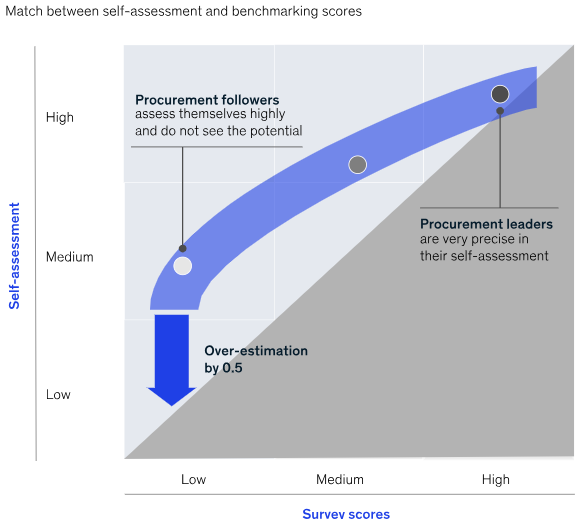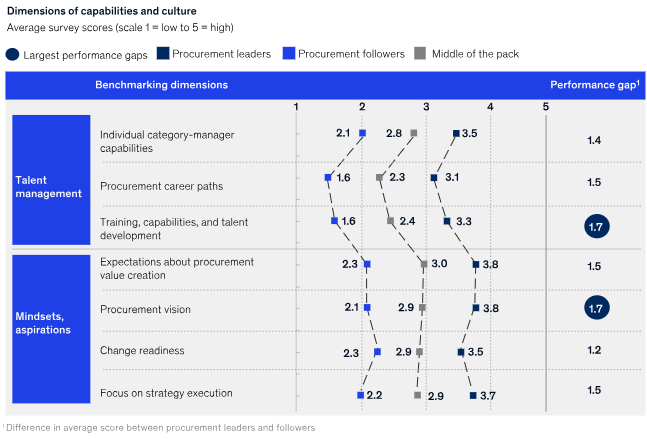The leaders who know more about the purchasing function become more realistic about what purchasing can do and how many goals can be achieved.
For many business leaders, the purchasing department seems to have a lower influence in the enterprise. In many companies, the purchasing function budget only accounts for one percent or less of the total budget, so it may not attract the Big functions have the same concerns. More importantly, however, we find that executives see purchasing purely as a transactional function to execute orders and deliver goods, rather than a potential source of value.
However, neglecting the functions of the procurement department can have huge adverse consequences. The Global Procurement of Excellence survey covers more than 1,100 corporate organizations worldwide, and the results show that compared to other companies, the best-performing procurement organizations understand their capabilities much more accurately (Figure 1). In contrast, procurement followers are particularly prone to overestimate their purchasing skills.

Overestimating existing capabilities can make companies blind to the need for improvement. What needs to be improved most? Of course, the procurement function needs to have basic knowledge in category management, global procurement, supplier development, and risk management. However, the survey data shows that the most important driver of procurement performance is not these “hard” indicators, but the “soft” indicators of purchasing department personnel (Figure 2).

Talent management is a particularly significant challenge, with research data showing a huge gap between procurement leaders and followers. The score on the career path for procurement is particularly low, which is consistent with treating procurement as an area with limited development potential. Organizations that create selective work rotation programs in functional roles in procurement are more likely to become procurement leaders, as are those organizations that ensure high-performing people are well paid and move to other parts of the business.
In addition, digitalization has proven to be as important in purchasing as the rest of the organization, so attracting and retaining talent is becoming increasingly important in the future. Only by hiring, training, and retaining digitally talented people can procurement achieve sustainable value creation in an increasingly chaotic and competitive landscape.
These research data show that it is important for enterprises to maintain advanced procurement capabilities. It is worthy of management's attention and it is worth investing in purchasing staff.
Note:
本文摘自麦肯锡官网。

